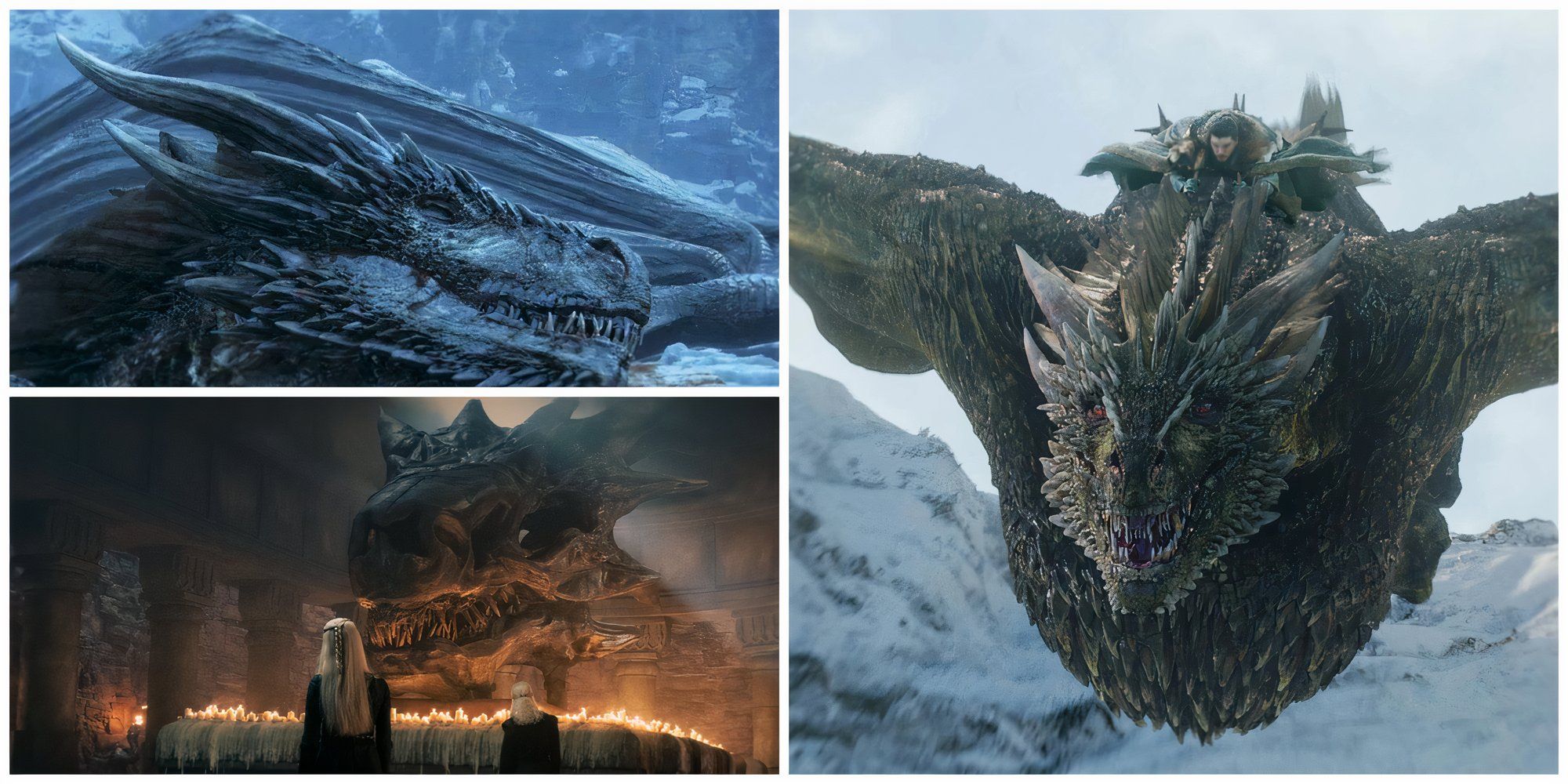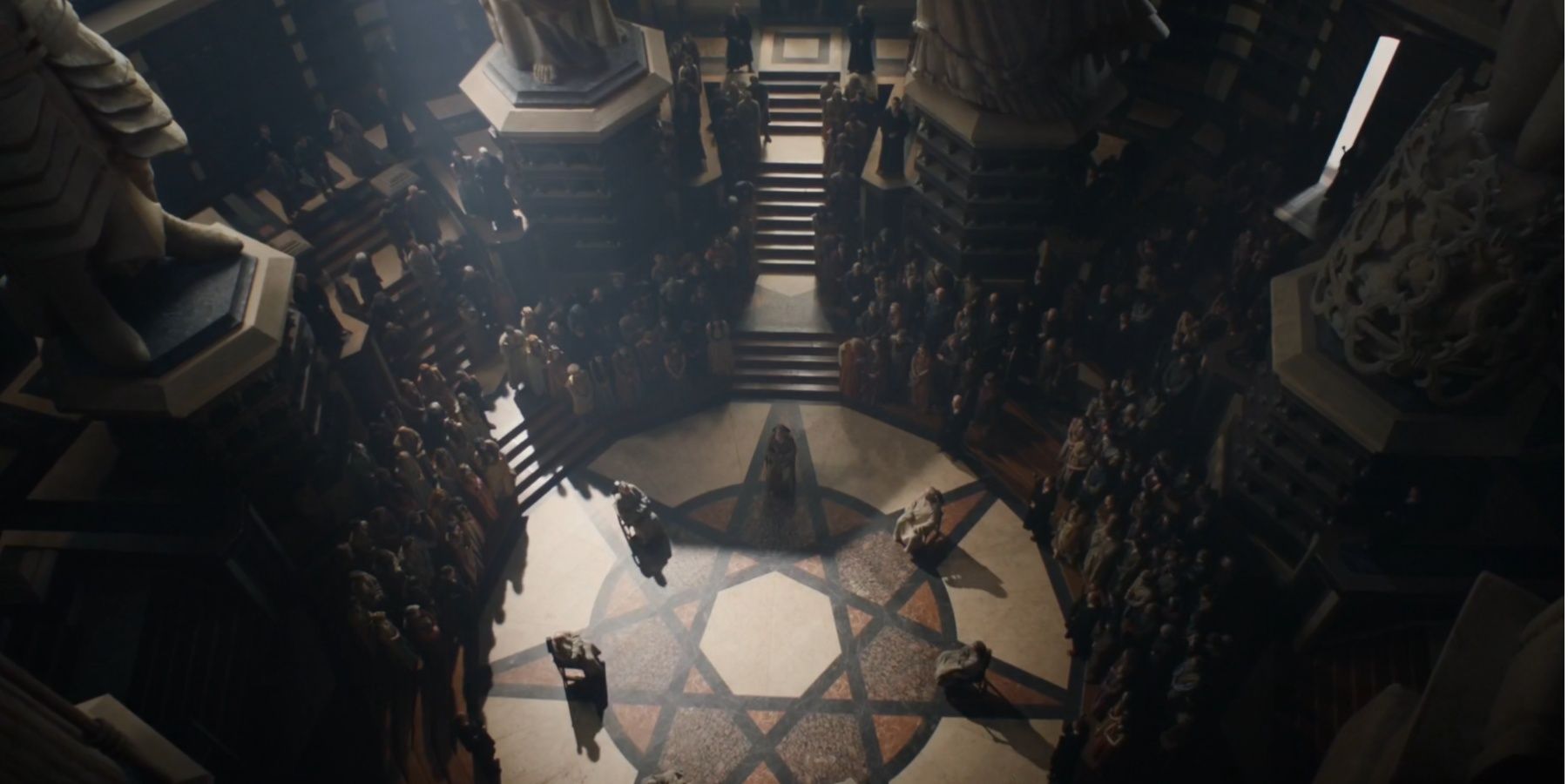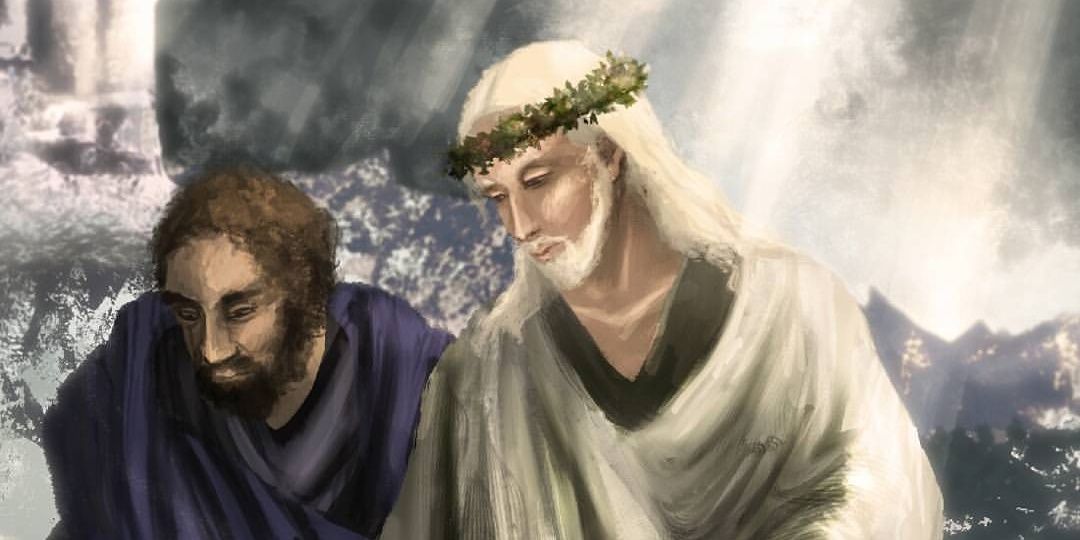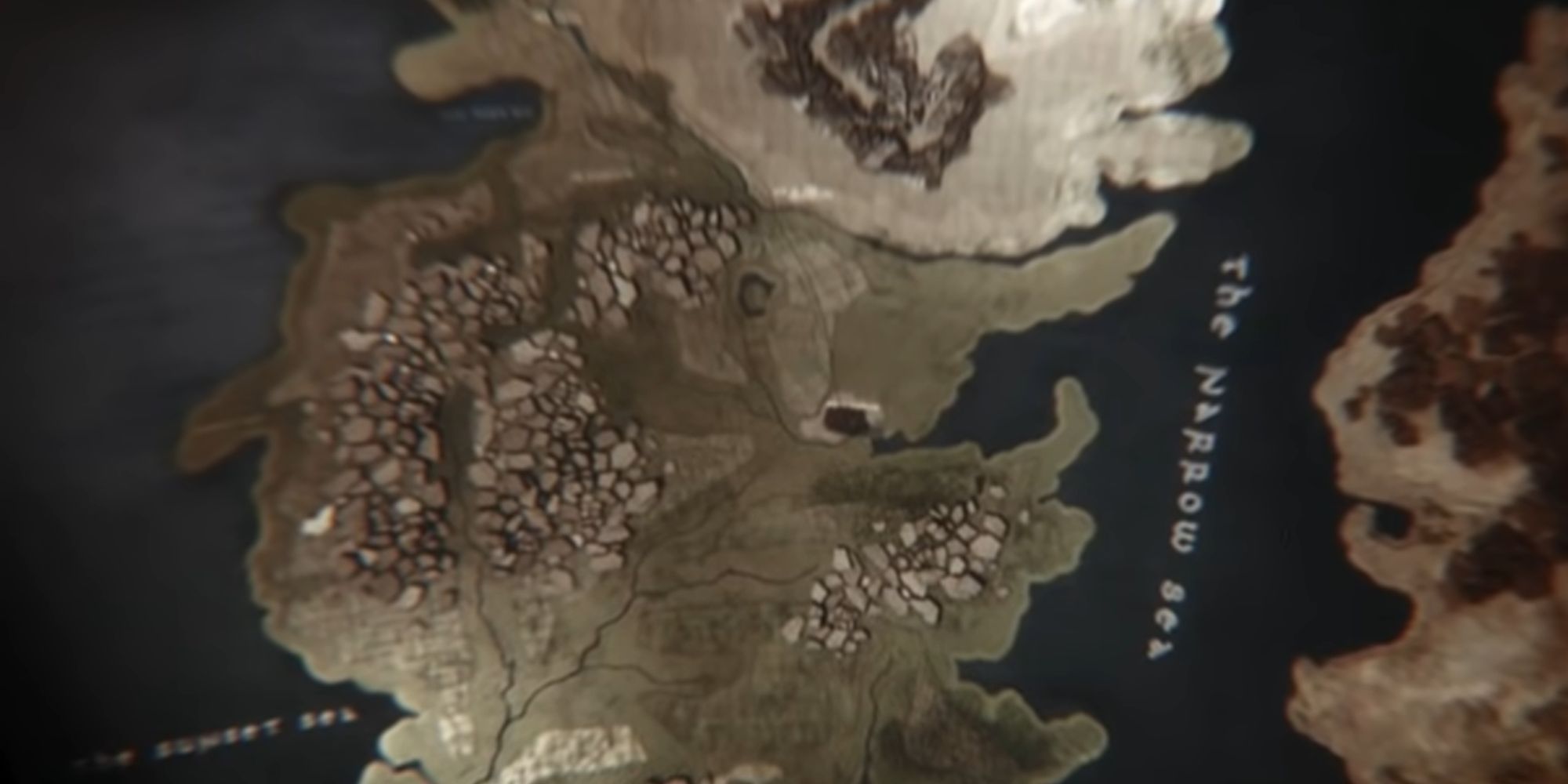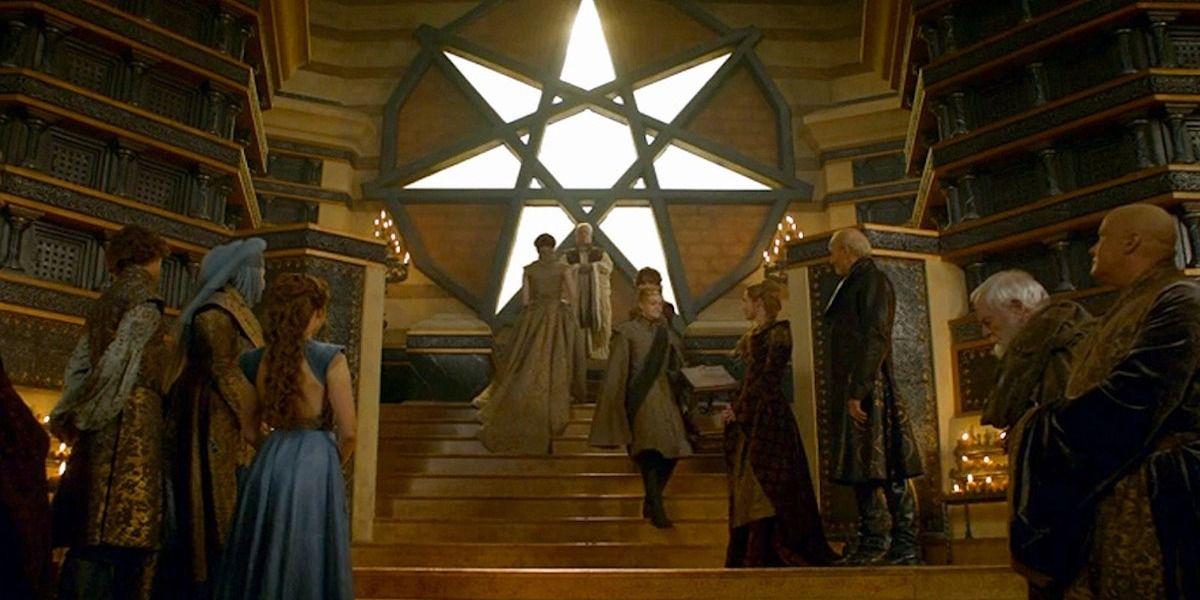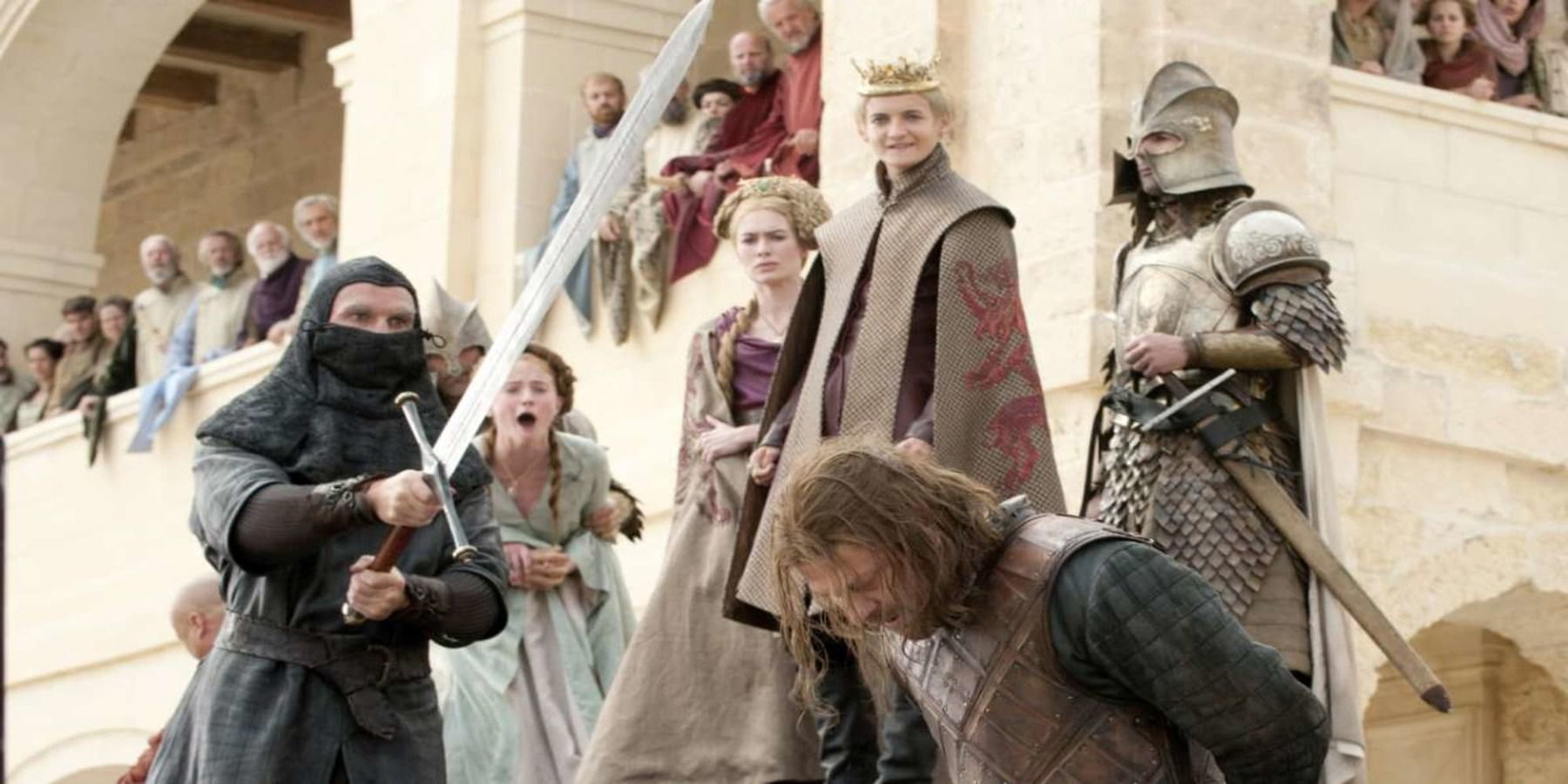The annals of Westeros are filled with many names both great and terrible. In George R.R. Martin's Game of Thrones, the actions of kings and commoners alike can have tremendous effects that ripple outward through time and shift the course of history. Much of that recorded history concerns members of the first royal family of the Seven Kingdoms, the Targaryens.
Where some of this infamous family carved their name in blood, living up to the House Targaryen words, "Fire and Blood," others sought a different path. One of the most famous Targaryens, whose legacy is still felt centuries later, during the events of the main series, is Baelor. Why is Baelor so famous, and where does his life fit into the rich tapestry of Martin's sprawling world?
Who was Baelor in Game of Thrones?
Baelor I Targaryen, later known as Baelor the Blessed, was the ninth Targaryen king on the Iron Throne and a septon in the Faith of the Seven. Baelor ascended to the Iron Throne at the age of seventeen in 161 AC (16 years after Aegon's Conquest) after the death of his brother King Daeron I Targaryen. Daeron died during a surprise attack by Dornish rebels not long after he had conquered the free nation. The king had returned to Dorne under the banner of peace talks but was betrayed. As retaliation for the murder of King Daeron, the then Hand of the King sent fourteen Dornish hostages to be executed but the newly crowned King Baelor pardoned them in his first act as king. Though the move angered the lords of Westeros and the members of the small council, it set the stage for Baelor's reign and cemented his reputation as a man of faith and generosity.
In an effort to foster peace between the Iron Throne and Dorne, Baelor followed the pardoning by personally returning the hostages. In a remarkable display of humility, the king walked the path to Dorne barefoot, clad in simple cloth and allowed the hostages to ride on horseback. Completing the treacherous journey, under such challenging circumstances was considered the first of Baelor's "miracles." The second came shortly after when Baelor successfully made peace with the Prince of Dorne.
On Baelor's return from Dorne, he sought to free Prince Aemon Targaryen of the Kingsguard from his imprisonment by the Dornish Lord Wyl. Aemon had been with King Daeron's side when the Dornishmen betrayed them. Rather than kill the young knight with his king and cousin, Daeron, Lord Wyl chose to keep him hostage and torture him in retribution for the Invasion of Dorne.
Baelor had requested that the Prince of Dorne command Lord Wyl release Aemon as part of the peace agreement between the Iron Throne and Dorne. Despite the Prince of Dorne's assurances, when Baelor reached Aemon's prison, the knight was suspended in a hanging cage over a put of vipers. Hoping that both Baelor and the knight would be killed in the rescue attempt, Lord Wyl freely gave the king the key to the cage and told his man not to intercede. Aemon begged the king to leave him but Baelor refused and entered the pit, believing that the gods would keep him safe.
Though singers and septons are fond of saying that the snakes didn't touch him because of his divinity, other sources say that he was bitten several times but survived. Whatever the truth, Baelor successfully freed his cousin Aemon and returned to King's Landing with another miracle under his belt. From there, his myth only continued to grow.
Upon returning to King's Landing, Baelor dissolved his unconsummated marriage to his sister, Daena, and then, in a disturbing display of misogyny and possession, confined Daena and his other two sisters in a "Maidenvault." His stated purpose was to "preserve their innocence" and prevent them from "tempting the men at court." It has since been suggested that he did these things for his own benefit. Baelor was clearly devoted not only to piety but the image of it, and he sought to distance himself from anything that wasn't chaste or "pure."
Baelor would go on to outlaw all forms of sex work, including King's Landing's infamous brothels, perform many more "miracles," and devote the latter portion of his reign to building his great sept. The Great Sept of Baelor, completed many years after the king's death, was one of the defining landmarks of King's Landing, and the center of the Faith of the Seven in Westeros. Baelor was also famous for granting tax exemptions to lords who forced their daughters to wear chastity belts and for attempting to birth new Targaryen dragons by praying over them. He was a proud book burner, among other fanatic religious practices, and often ran afoul of the nobles and maesters of Westeros. However, the commonfolk, some of whom shared his somewhat simpleminded view of "piety," favored him for his frequent donations of food and money.
What Happened to Baelor?
As one of his several acts of piety, Baelor would frequently fast. He took up the practice late in his reign as a self-imposed way of "taming" lust and other human impulses that shamed him and to show devotion to the gods. After his cousin Princess Naerys gave birth to twins that died soon after delivery, Baelor fasted for a full month. When Daena, his sister and former wife gave birth to a bastard, he fasted again for an additional forty days, eating only water and bread. On the forty-first day, he collapsed and died.
For obvious reasons, the common narrative is that Baelor simply starved himself to death. But some people believe that he was poisoned by the Hand of the King, his uncle Viserys in an effort to spare the realm Baelor's zealotry.
Why did Ned Stark Say "Baelor" before being executed?
After Ned Stark discovers the truth about King Robert's children - none of them are his but were instead fathered by Queen Cersei's brother Jaime - he attempts to take the throne until a true heir emerges. Too noble for his own good, Ned is outmaneuvered, betrayed, and charged with treason. Though he was offered a deal - a lifetime of service on the Wall as a brother of the Night's Watch in exchange for a forced confession - the sociopathic boy king, Joffery, ordered his execution.
The entire spectacle happened on the steps of Baelor's Great Sept before a crowd of commonfolk, all of whom believe that Lord Stark was truly a traitor. Leading up to the execution, the Lannisters had purged House Stark from King's Landing, killing all the Stark soldiers and capturing any members of the noble family they could. While Sansa, the eldest daughter and then betrothed of King Joffery, was taken, Arya Stark evaded capture.
Young Arya was in the crowd during the execution and climbed on top of a statue of Baelor in order to get a better view of the proceedings. Ned spotted as he was being led to the steps and told Yoren, a member of the Night's Watch that he knew well, where to find her. In the confusion, all he could manage to say was "Baelor!" Fortunately, Yoren understood and was able to smuggle Arya to safety.

